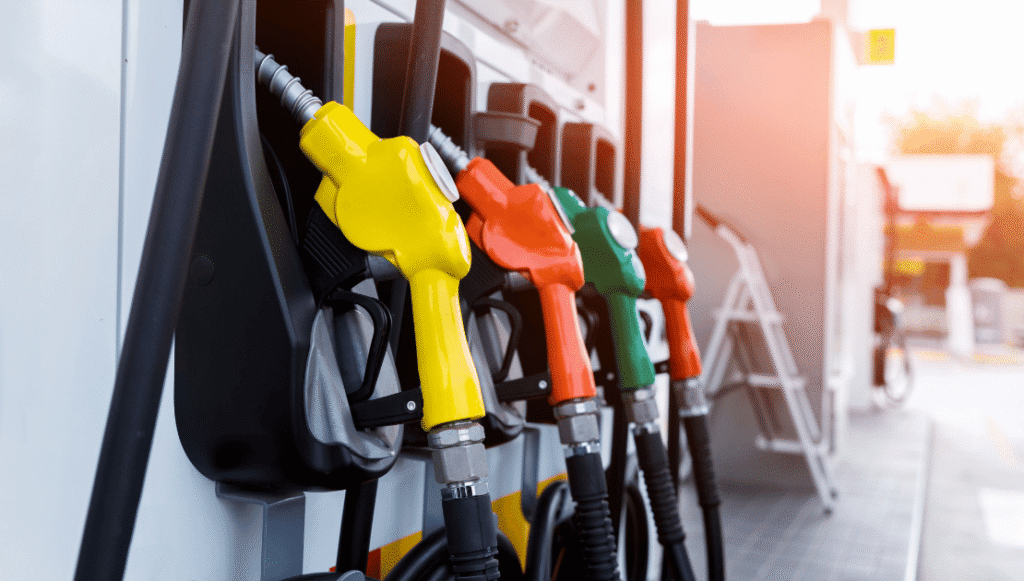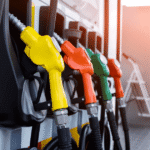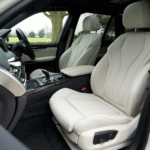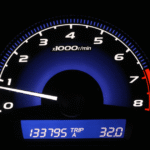For most Indian car buyers, one of the biggest decisions comes before even stepping into a showroom: choosing between a petrol or diesel car. While both fuel types have their loyal supporters, the landscape has changed drastically over the years, especially with rising fuel prices, stricter emission norms, and the growing popularity of hybrid and electric vehicles.
The dilemma is real: petrol cars are known for their refined engines, lower initial costs, and ease of maintenance, while diesel vehicles boast superior mileage and higher torque, making them ideal for long-distance driving. However, the cost difference between petrol and diesel fuel has narrowed in many states, and new regulations have increased the purchase cost of diesel vehicles. Add to that the complexity of BS6 compliance and shifting government policies, and buyers are often left more confused than ever.
In today’s evolving automotive market, it’s no longer just about fuel type; it’s about matching your vehicle to your lifestyle and long-term ownership goals. Urban drivers, long-distance commuters, budget-conscious families, and environmentally aware buyers all have different needs, and each fuel type offers unique advantages.
This article aims to simplify the choice by offering a clear, fact-based comparison of petrol and diesel cars, listing the top 3 models from each category, and exploring the growing relevance of hybrid cars and electric vehicles (EVs) in India. Whether you’re buying your first car or looking to upgrade smartly, this guide will help you understand what truly suits your driving habits, budget, and future needs.
Petrol vs Diesel: Core Differences
When choosing between a petrol and a diesel car in India, it’s essential to go beyond just fuel price. Several practical factors, from mileage and performance to long-term maintenance and environmental impact, influence which option makes more sense for your needs. Below is a breakdown of the key differences:
Fuel Cost
Diesel fuel has traditionally been cheaper than petrol in India, but in recent years, the price gap has reduced significantly. In some cities, the difference is just ₹2–4 per litre. This narrowing makes diesel less appealing for low-mileage users who once relied on cheaper running costs. Diesel still holds an edge for long-distance drivers, but the savings aren’t as significant as before.
Mileage & Efficiency
Diesel engines are inherently more fuel-efficient. On average, a diesel car delivers 20–25% more mileage than its petrol counterpart. For users clocking over 1,500 km per month, this efficiency can translate to noticeable savings. Diesel cars thus offer better mileage, especially on highways.
Maintenance & Service Costs
While diesel engines are built to be rugged, they are also more complex and expensive to maintain. Parts like turbochargers, fuel injectors, and particulate filters are costlier to repair or replace. Petrol cars, on the other hand, are simpler and cheaper to service. Petrol cars are thus more economical and easier to maintain in the long run.
Performance & Engine Response
Diesel engines deliver more torque at lower RPMs, making them great for pulling power and highway cruising. Petrol engines, however, are smoother and better suited for city driving, with quick throttle response and quieter performance. So, use diesel for power and highway torque; petrol for refinement and city use.
Initial Purchase Cost
Diesel variants typically cost ₹1–2 lakh more than their petrol counterparts due to advanced engine components and emissions control systems. This makes petrol cars more budget-friendly upfront, and petrol is the winner for affordability.
Environmental Impact (BS6 Norms)
BS6 regulations have made diesel engines cleaner, but they still emit more NOx and particulates compared to petrol. Petrol engines are cleaner and more suitable for urban areas with pollution concerns. Thus, to conclude, we say that petrol is eco-friendly under current norms.
Petrol vs Diesel – Pros and Cons
| Feature | Petrol Cars | Diesel Cars |
|---|---|---|
| Fuel Cost | Higher | Slightly lower |
| Mileage | Moderate (12–18 km/l) | High (18–25+ km/l) |
| Maintenance Cost | Low | Higher |
| Engine Performance | Smooth, refined | High torque, slightly noisy |
| Purchase Cost | Lower | ₹1–2 lakh higher |
| Pollution (BS6 Impact) | Lower emissions | More NOx, requires filters (DPF, SCR) |
| Ideal For | City commuters, low-mileage users | Long-distance drivers, frequent highway users |
Petrol is better for city users with low to moderate usage. Diesel makes sense for those covering high mileage regularly, especially on highways. The next sections will spotlight top models in each category.
List of the 3 Best Petrol Cars in India
Petrol cars continue to be the preferred choice for a large section of Indian car buyers, especially in urban settings. Below are three of the top petrol-powered cars in India that strike the right balance between efficiency, comfort, and performance.
- Maruti Suzuki Baleno
- Hyundai i20
- Honda City Petrol
Known for lower maintenance, refined performance, and a lower upfront cost, petrol vehicles are ideal for users with moderate to low daily usage. Let’s learn about these cars in detail below:
1. Maruti Suzuki Baleno
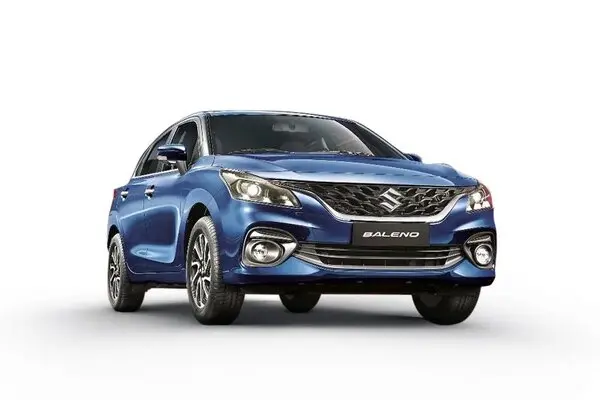
Overview & Target Buyer
The Maruti Suzuki Baleno is a premium hatchback designed for urban families, professionals, and daily commuters who want a mix of style, fuel efficiency, and trusted service support. As one of the best-selling petrol cars in India, the Baleno ticks almost every box for budget-conscious yet quality-seeking buyers.
Engine Specs & Performance
- Engine: 1.2L K-Series Dual Jet, Dual VVT Petrol
- Power Output: 89.7 PS @ 6000 rpm
- Torque: 113 Nm @ 4400 rpm
- Transmission: 5-speed Manual / AMT
- The Baleno’s engine is refined, smooth, and tuned more for efficiency than aggressive power.
Fuel Efficiency
- ARAI Claimed Mileage: 22.35 km/l (MT), 22.94 km/l (AMT)
- Real-World Mileage: 16–18 km/l in city, up to 20 km/l on highways
Features & Pricing
- Highlights include a 9-inch touchscreen, 6 airbags (top variant), 360-degree camera, auto climate control, and cruise control.
- Price Range (ex-showroom): ₹6.66 – ₹9.88 lakh
Why It’s a Top Petrol Pick
- Excellent mileage, low maintenance, Maruti’s wide service network, and strong resale value make the Baleno one of the most practical petrol hatchbacks in India.
2. Hyundai i20
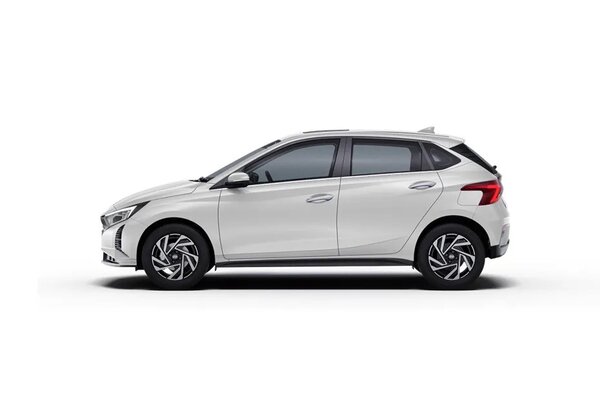
Overview & Target Buyer
The Hyundai i20 is a premium urban hatchback for tech-savvy buyers who want modern features and a refined driving experience. It appeals especially to young professionals and small families who prioritize design, performance, and in-cabin tech.
Engine Specs & Performance
- Engine: 1.2L Kappa Petrol
- Power Output: 83 PS (MT), 88.7 PS (CVT)
- Torque: 114.7 Nm
- Transmission: 5-speed Manual / IVT (CVT)
- The engine is smooth and city-friendly, offering comfortable drivability with good low-end power.
Fuel Efficiency
- ARAI Mileage: 19.65 km/l (MT), 20.35 km/l (CVT)
- Real-World Mileage: 14–16 km/l in city, 17–18 km/l on highways
Features & Pricing
- Features include a digital instrument cluster, wireless charging, sunroof, 10.25-inch infotainment, connected car tech, 6 airbags, and rear AC vents.
- Price Range (ex-showroom): ₹7.04 – ₹11.21 lakh
Why It’s a Top Petrol Pick
- It stands out for its premium styling, rich feature list, and brand reliability. A great urban choice for buyers looking for value and a touch of luxury.
3. Honda City Petrol
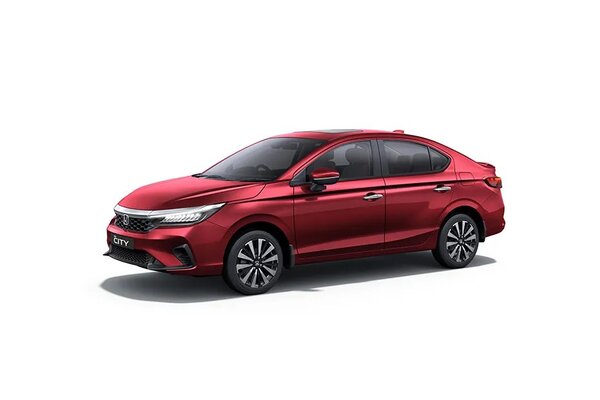
Overview & Target Buyer
The Honda City has long been a favorite among mid-size sedan lovers for its smooth engine, spacious cabin, and elegant design. The petrol variant is ideal for executive-class buyers and families looking for comfort with performance.
Engine Specs & Performance
- Engine: 1.5L i-VTEC DOHC Petrol
- Power Output: 121 PS @ 6600 rpm
- Torque: 145 Nm @ 4300 rpm
- Transmission: 6-speed Manual / CVT
- This engine is known for its linear power delivery and excellent refinement. A joy to drive both in city and highway conditions.
Fuel Efficiency
- ARAI Mileage: 17.8 km/l (MT), 18.4 km/l (CVT)
- Real-World Mileage: 13–15 km/l in city, 16–17 km/l on highways
Features & Pricing
- Features include LaneWatch camera, LED headlights, 8-inch touchscreen with Alexa voice support, connected car tech, 6 airbags, and premium interior materials.
- Price Range (ex-showroom): ₹11.82 – ₹15.97 lakh
Why It’s a Top Petrol Pick
- The City delivers the perfect blend of driving pleasure, premium comfort, and practicality, making it one of the best petrol sedans in its segment.
These three petrol-powered vehicles represent different segments — hatchback and sedan — and cater to various budgets and needs. Whether it’s efficiency, tech features, or sheer driving refinement, each offers something unique to Indian car buyers. Up next, we’ll explore the best diesel alternatives.
List of the 3 Best Diesel Cars in India
Diesel cars continue to have a strong presence in India, especially among buyers who drive long distances regularly. Below are three of the top diesel cars in India that offer the best combination of performance, features, and value.
- Tata Nexon Diesel
- Kia Sonet Diesel
- Hyundai Creta Diesel
With higher torque, better mileage, and efficient long-haul performance, diesel vehicles are ideal for highway users, fleet operators, and those who prioritize fuel economy over time. These cars are explained in detail below:
1. Tata Nexon Diesel
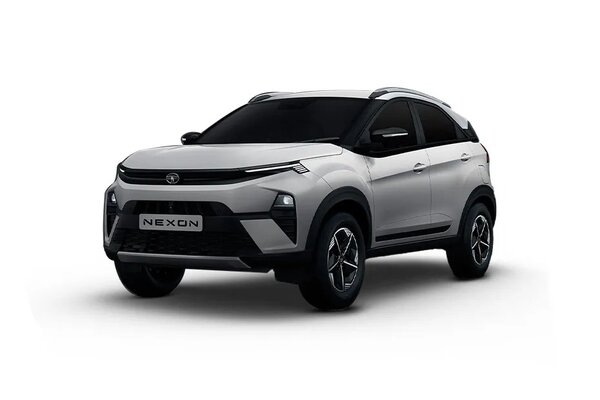
Overview & Ideal Usage
The Tata Nexon Diesel is one of the most versatile compact SUVs in India. It’s ideal for urban users who also take frequent highway trips, offering a great balance between city agility and long-distance torque. It’s also a popular choice for those seeking rugged build quality and safety.
Diesel Engine Performance
- Engine: 1.5L Revotorq Turbo Diesel
- Power Output: 115 PS
- Torque: 260 Nm
- Transmission: 6-speed Manual / 6-speed AMT
- The turbo-diesel engine is responsive, especially in Sport mode, and handles overtaking and inclines effortlessly.
Mileage Stats
- ARAI Mileage: 23.22 km/l (Manual), 24.07 km/l (AMT)
- Real-World Mileage: 17–19 km/l in city, 20–22 km/l on highway
Key Features & Variants
- Features include a 10.25-inch touchscreen, 6 airbags, ventilated seats (top variant), wireless charger, and connected car tech.
- Safety is a strong point: 5-star GNCAP rating.
Pricing & Why It Stands Out
- Price Range (Ex-showroom): ₹9.99 – ₹15.80 lakh
- It stands out for being one of the few diesel options in the compact SUV space, offering strong value, solid build, and class-leading safety.
2. Kia Sonet Diesel
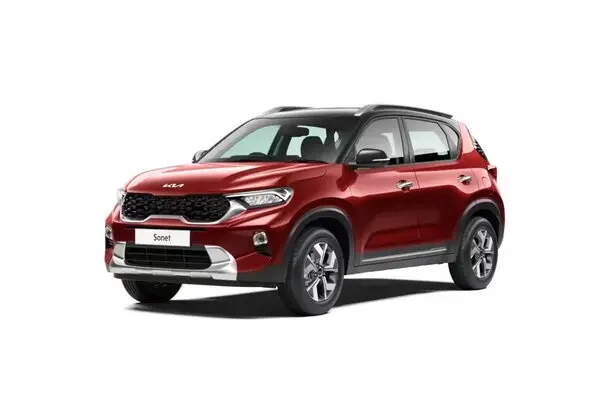
Overview & Ideal Usage
The Kia Sonet Diesel caters to urban professionals and families who want refinement, premium interiors, and fuel efficiency, all in a compact footprint. It’s also popular among highway users who prefer a diesel automatic for effortless long drives.
Diesel Engine Performance
- Engine: 1.5L CRDi VGT Diesel
- Power Output: 116 PS (AT), 100 PS (MT)
- Torque: 250 Nm (AT), 240 Nm (MT)
- Transmission: 6-speed iMT / 6-speed Manual / 6-speed Torque Converter AT
- The engine is highly refined and offers strong mid-range performance.
Mileage Stats
- ARAI Mileage: 19–22.3 km/l depending on variant
- Real-World Mileage: 16–18 km/l in city, 19–21 km/l on highway
Key Features & Variants
- Features include ventilated seats, 10.25-inch infotainment, Bose sound system, sunroof, 6 airbags, wireless Android Auto/Apple CarPlay.
- Diesel AT is only offered in higher trims.
Pricing & Why It Stands Out
- Price Range (Ex-showroom): ₹9.79 – ₹15.69 lakh
- It’s one of the most premium diesel compact SUVs in the segment, offering an unmatched combination of style, tech, and performance.
3. Hyundai Creta Diesel
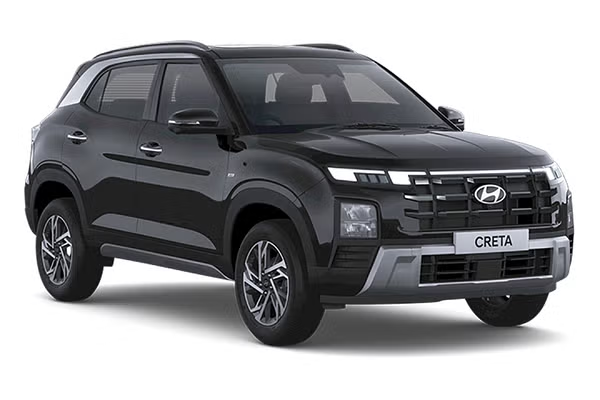
Overview & Ideal Usage
The Hyundai Creta Diesel remains one of the most trusted choices for those looking for a powerful and refined diesel SUV. It’s ideal for frequent highway travelers, growing families, and even urban users who want a smooth automatic experience.
Diesel Engine Performance
- Engine: 1.5L U2 CRDi Diesel
- Power Output: 116 PS
- Torque: 250 Nm
- Transmission: 6-speed Manual / 6-speed Torque Converter AT
- The engine is refined, with great drivability in both city and highway conditions.
Mileage Stats
- ARAI Mileage: 21.4 km/l (MT), 19.1 km/l (AT)
- Real-World Mileage: 16–18 km/l in city, 19–21 km/l on highways
Key Features & Variants
- Offers 6 airbags, panoramic sunroof, ADAS (in new facelift), ventilated seats, 10.25-inch touchscreen, wireless charging, digital cluster.
- Strong road presence and comfort-oriented suspension.
Pricing & Why It Stands Out
- Price Range (Ex-showroom): ₹12.56 – ₹20.14 lakh
- The Creta Diesel offers a premium experience with strong resale value, spacious interiors, and class-leading refinement in the diesel SUV category.
These diesel-powered cars continue to be relevant in 2025 for drivers who prioritize torque, long-distance efficiency, and long-term savings on fuel. In the next section, we’ll compare petrol and diesel options side-by-side based on real-world ownership experiences.
You may also like: When Is the Best Time to Buy Your First Car? Seasonal & Monthly Tips
Petrol vs Diesel: Real-World Use Case Comparisons
Choosing between a petrol or diesel vehicle isn’t just about engine type—it’s about matching the fuel to your actual driving needs. Here’s how petrol and diesel cars stack up across different real-world use cases commonly faced by Indian buyers.
- City Driving – Short Trips, Traffic, and Stop-and-Go
Petrol cars shine in city conditions. They offer smoother power delivery at low speeds, warm up quickly during short trips, and require less complex emission controls, making them ideal for stop-and-go traffic. In contrast, diesel engines take longer to reach optimal temperature and don’t perform as efficiently in frequent short runs, which can affect engine life and performance in the long run.
Verdict: Petrol cars are better suited for city use, especially if your daily drive is under 40 km.
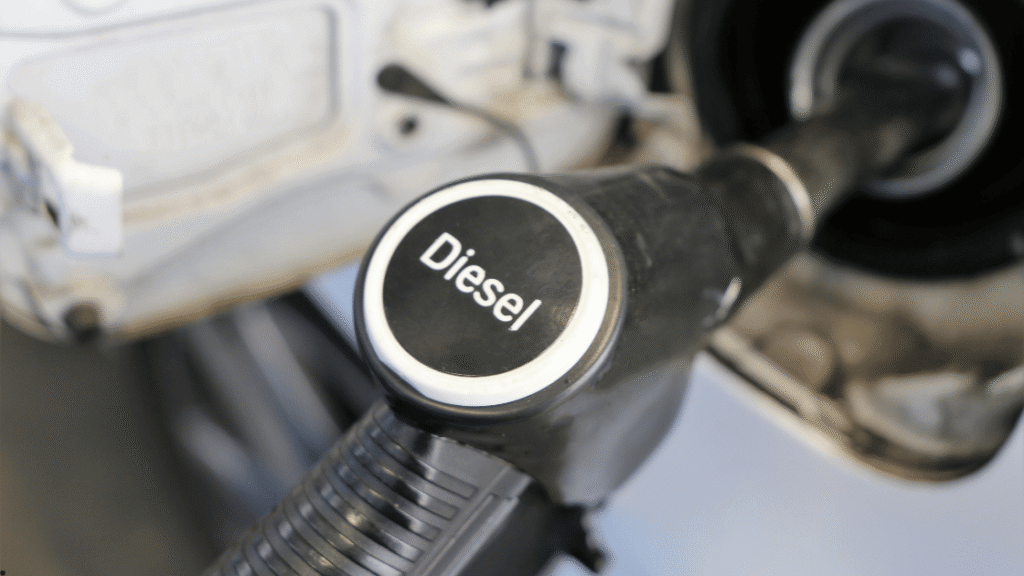
- Highway Commute – Long-Distance and Regular Travel
This is where diesel cars truly shine. Thanks to their higher torque, diesel engines deliver better highway cruising performance and superior fuel economy on long journeys. They’re especially preferred by users clocking 1,200 km or more per month.
Verdict: Diesel is the better choice for long-distance travelers or intercity commuters.
- Resale Value Trends
The resale value for diesel cars used to be higher due to their efficiency and ruggedness. However, this trend is changing with:
- The rising popularity of petrol and hybrid cars
- Uncertainty about diesel bans in metro cities
- BS6 emission complexities
Today, petrol cars have more consistent resale demand, especially in tier-1 and tier-2 cities.
Verdict: Petrol cars are gaining an edge in resale value, particularly for compact and mid-size segments.
- Ownership Cost Over 5 Years
Let’s take a simplified TCO (Total Cost of Ownership) comparison for a mid-size hatchback (example: Baleno Petrol vs. i20 Diesel):
| Cost Component | Petrol Car | Diesel Car |
|---|---|---|
| On-road Price | ₹8 lakh | ₹9.2 lakh |
| Average Fuel Mileage | 17 km/l | 21 km/l |
| Avg. Fuel Price (2025) | ₹105/litre | ₹95/litre |
| Yearly Distance Driven | 12,000 km | 12,000 km |
| 5-Year Fuel Cost | ₹3.7 lakh | ₹2.7 lakh |
| 5-Year Maintenance | ₹25,000 | ₹45,000 |
| Total Cost (5 yrs) | ₹12.45 lakh | ₹12.35 lakh |
Observation: Despite higher purchase cost and maintenance, diesel slightly wins for high-mileage users. But if you drive less than 1,000 km/month, petrol cars are more economical over time.
- BS6 Norms and Future Relevance
BS6 regulations have significantly impacted diesel cars:
- Mandatory DPF (Diesel Particulate Filter) and SCR systems increase complexity.
- DPF clogging is a concern in short trips or urban driving.
- Government policies are discouraging diesel in metros to control pollution (e.g., NCR diesel bans after 10 years).
Petrol engines, being cleaner, are more future-proof and more compliant with emission norms in cities.
Verdict: Petrol cars are more future-ready, especially in metro cities with environmental restrictions.
Final Comparison Snapshot
| Criteria | Petrol Cars | Diesel Cars |
|---|---|---|
| Best For | City driving, short trips | Long-distance, heavy usage |
| Fuel Cost per km (avg) | ₹6–₹7/km | ₹4–₹5/km |
| Maintenance | Lower | Higher |
| Resale (2025 outlook) | Moderate to strong | Declining in some cities |
| BS6 & Urban Relevance | High (cleaner) | Moderate (DPF issues) |
Bottom Line:
- Choose petrol if your usage is mostly city-based or below 1,000–1,200 km per month.
- Opt for diesel if you’re a frequent highway driver or plan to cover more than 15,000 km annually.
- For others, hybrids and EVs are becoming the smarter middle ground—something we’ll explore next.
Hybrid Cars – The Best of Both Worlds?
Hybrid cars blend the fuel efficiency of electric motors with the convenience of petrol engines, offering a smart middle ground for modern drivers. Mild hybrids assist during acceleration, while strong hybrids can run on electric power alone at low speeds. Popular models like the Honda City e:HEV and Toyota Hyryder deliver over 27 km/l, making them ideal for urban use. Benefits include lower emissions, smoother drives, and no range anxiety. However, they come with higher upfront costs, potential battery expenses, and limited choices. For city commuters seeking efficiency and flexibility, hybrids present a balanced, eco-friendly alternative to traditional fuel cars.
EVs and the Future of Fuel Efficiency
Electric Vehicles (EVs) are rapidly emerging as a practical, eco-friendly alternative to diesel cars, especially in Indian cities where emission norms are tightening. With operating costs as low as ₹1–₹1.5 per km, compared to ₹5–₹10 for petrol or diesel—EVs offer significant long-term savings. Popular models like the Tata Punch EV, Nexon EV, MG Comet, and Hyundai Kona cater to various needs and budgets. While range anxiety, charging infrastructure, and battery replacement costs remain concerns, ongoing advancements are addressing these issues. For urban commuters, EVs promise cleaner, quieter, and more economical mobility, making them a smart investment for the future.
Final Verdict: Which One Should You Buy?
Choosing between petrol, diesel, hybrid, or EV comes down to how and where you drive. If your daily commute is short and mostly within city limits, petrol cars offer low upfront costs, smooth performance, and easy maintenance, making them ideal for budget-conscious buyers. For those clocking high monthly mileage or frequently traveling on highways, diesel cars still provide better mileage and torque, despite slightly higher maintenance.
Hybrid cars suit eco-conscious urban users who want fuel efficiency without the range anxiety of EVs—they’re great for stop-and-go traffic. Meanwhile, if you have access to reliable charging infrastructure and want to future-proof your drive, EVs are the smartest long-term bet, offering massive savings on running costs. Ultimately, match your fuel choice to your lifestyle, not just your budget, for smarter ownership and better performance in the long run.
Conclusion: Think Long Term, Drive Smart!
In today’s evolving automotive landscape, choosing the right fuel type is no longer a one-size-fits-all decision. Petrol cars are ideal for city use and offer affordability with low maintenance, while diesel vehicles are built for power, efficiency, and long-distance travel. Hybrid cars blend the best of both worlds—offering excellent mileage and lower emissions—whereas EVs are paving the way for a cleaner, quieter future with impressive cost savings over time.
Each option comes with its own set of pros and cons, so the smart move is to evaluate your daily usage, commute pattern, fuel availability, and long-term cost of ownership before deciding. Don’t just go by initial price—consider the total value the car adds over time.
After all, “A smart car choice is not about the fuel it uses, but how well it fuels your journey.”
Drive with awareness, plan with purpose, and choose the car that truly fits your lifestyle.

